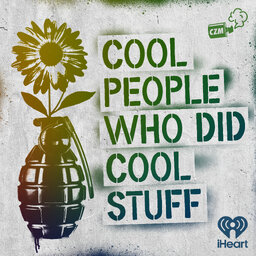Part One: When Women Were Computers: A Tale of Space and Math
Margaret talks with Bridget Todd about the space race, Russian cosmists, gay scientists, and the women who got humanity to the moon.
In 1 playlist(s)
Cool People Who Did Cool Stuff
As long as there’s been oppression, there’ve been people fighting it. This weekly podcast dives into…Social links
Follow podcast
Recent clips

Part Two: Ben Passmore on Black History
36:20

Part One: Ben Passmore on Black History
35:44

Everyone vs ICE: On the Ground In Minnesota, Pt. 2
1:02:17
 Cool People Who Did Cool Stuff
Cool People Who Did Cool Stuff